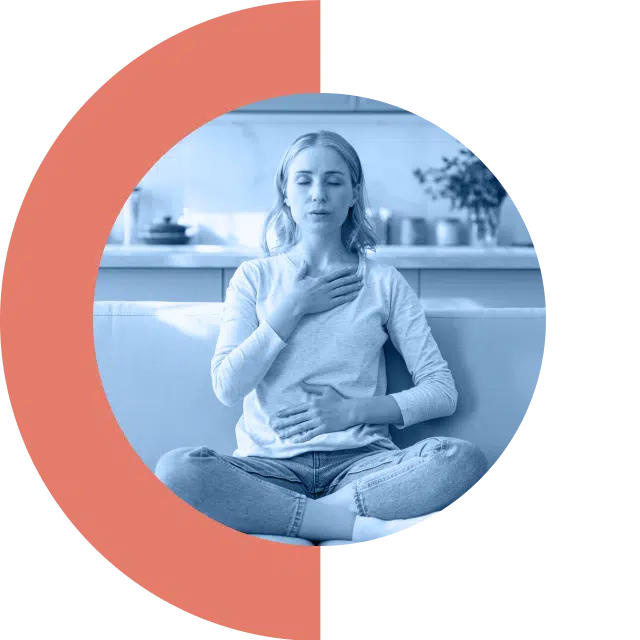Dialectical Behaviour Therapy (DBT) Program
The OICBT offers a comprehensive DBT Program based on Marsha Linehan’s evidence-based treatment model for Borderline Personality Disorder (BPD). Our DBT program involves both individual psychotherapy and weekly skills group training.

Skills-Based Care
DBT is helpful for people experiencing difficulties managing intense emotions and behaviours by teaching problem-solving and coping skills.
Holistic Support
Our DBT program has four components: DBT Skills Training Group, Individual Therapy, Case Management, and DBT Consultation Team.
Real-Life Skills
The value of skills training is that it teaches clients effective and practical skills to help regulate their distress, strengthen relationships, and become more resilient.

Comprehensive Programming
Our DBT program is a comprehensive treatment that involves both individual psychotherapy and weekly skills group training. In order to participate in the program, participants need to commit to weekly group therapy and supplementary individual therapy sessions.

DBT Skills-Base Training Modules
Mindfulness Skills are central to DBT and are integrated throughout the DBT program. The core modules of the DBT program include:
- Emotion Regulation Skills: Learning to understand, name, and change emotions
- Interpersonal Effectiveness Skills: Learning to maintain healthy relationships and foster self-respect
- Distress Tolerance Skills: Learning to survive and manage crisis periods
The Benefits of DBT for Emotional Well-Being
DBT is an effective treatment for managing intense emotions, and simultaneously developing acceptance as a way to promote positive and healthy behavioural change.
There are four key elements of DBT:
Mindfulness
Mindfulness involves learning to be in the present by observing your thoughts, emotions and actions, without judgment.
Distress Tolerance
Behaviour change isn’t always possible immediately, especially in times of crisis. Distress tolerance helps us cope with emotional pain and challenging situations, accepting them for what they are and letting go of what we think they ‘should’ be.
Emotional Regulation
Emotional regulation helps us work with intense emotions, developing strategies to regulate them. This involves learning techniques to identify emotions for what they are (e.g. anger, sadness, anxiety), reduce susceptibility to extreme emotions,
experience more positive emotions, and cope better when intense emotions do arise.
Interpersonal Effectiveness
This is the ability to improve the way you communicate in relationships with others. This can help you be more assertive, communicate your needs clearly, and set boundaries to protect your mental health.
The benefits of DBT include:
- Improves relationships: DBT can teach people how to improve their relationships through effective communication skills, respectful boundaries, and trust.
- Stress management: DBT can help you learn how to manage difficult emotions by increasing awareness of feelings and coping with triggers for negative thoughts and behaviours.
- Target unhealthy behaviours: DBT teaches you how to manage emotions and behaviours that interfere with your life.
- Teaches skills for everyday life: Mindfulness, Distress Tolerance, Interpersonal Effectiveness, and Emotional Regulation skills can help you navigate the challenges in all areas of your life.
Frequently Asked Questions: DBT Program
We understand that considering starting a DBT group comes with many questions. See below for your most frequently asked questions.
Yes. Clients in the DBT program must attend both the weekly skills group and supplemental individual therapy with a therapist at OICBT or in the community.
For the latest group fees, please refer to our current fee schedule on our website
No. Clients can take one module at a time, but we encourage them to complete the entire program (all 3 modules) for the most benefit.
This type of service is usually covered for individuals with extended health care benefits; however, we recommend that you follow-up with your insurance company to confirm this.
Generally groups are held in the early evenings. Please contact us for current days and times.
You can self-refer on our website or contact us.
Every client who is enrolled in the DBT program will have an orientation session before starting the group.
